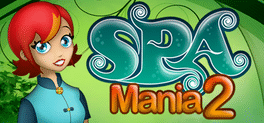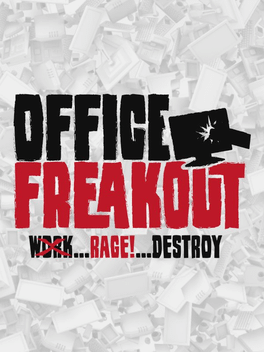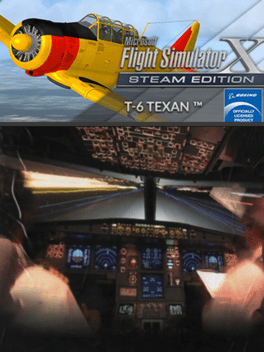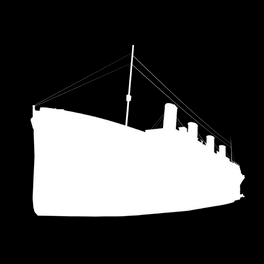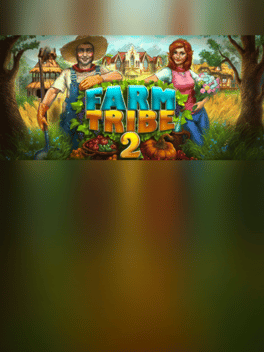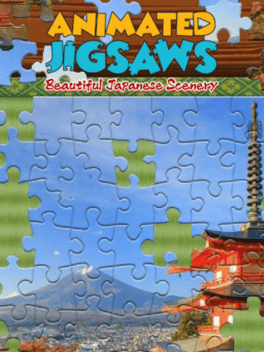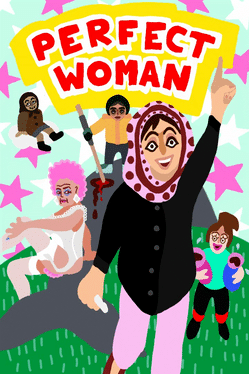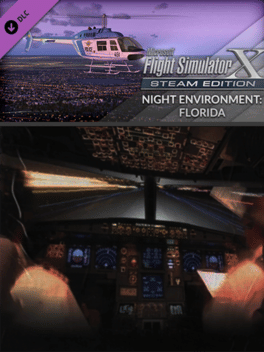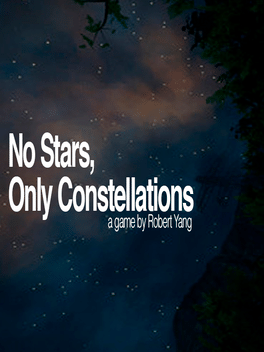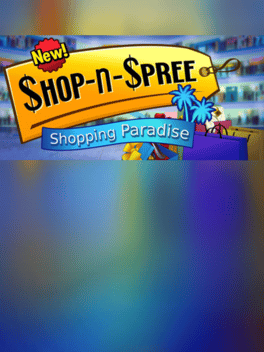New Simulator Games - Page 260
-
Spa Mania 2
2016
-
Office Freakout
2016
Office Freakout
2016
star 5.3Philbert is a disgruntled office worker who has been slaving away his entire life dealing with tedious reports, spreadsheets, grueling hours of data entry, and related crap. -
Trainz: A New Era - Route: Niddertalbahn
2016
An idyllic, single-track branch line in Wetterau- and Main-Kinzig-Kreis - and best of all it's free! -
City VR
2016
City VR
2016
City VR allows you to discover new perspectives to look upon cities like never have before. Touch and feel the skyscrapers, teleport around, walk like a giant, take snapshots of favorite views and moments, or simply enjoy the sunset from the top of the world. -
Microsoft Flight Simulator X: Steam Edition - North American F-86F-1 Sabre
2016
The F-86 Sabre was a natural replacement for the F-80 Shooting Star. First introduced in 1949 for the United States Air Force, the F-86 featured excellent performance for its day, outstanding handling characteristics, and high adaptability. The Sabre served in a number of NATO-aligned countries and was even produced in Canada. -
Microsoft Flight Simulator X: Steam Edition - North American T-6 Texan
2016
The North American T-6 Texan was an excellent design that served as a basic transitional combat trainer in all branches of U.S. service as well as in countries worldwide. U.S. Navy pilots utilised the type under the SNJ designation, the most common versions being the SNJ-4, SNJ-5 and SNJ-6. -
Microsoft Flight Simulator X: Steam Edition - Night Environment: California
2016
Night Environment completely revolutionizes night flying in the FSX: Steam Edition world. Using a series of databases, Night Environment adds brilliant, realistic lighting to your simulator. Hundreds of thousands of lights clearly show how highways connect to cities and how smaller roads meander through neighbourhoods. -
Train Simulator: Outeniqua Choo Tjoe Route Add-On
2016
The Outeniqua Choo Tjoe was one of South Africa's longest-lived and most famous steam passenger train services - and now the spectacular and challenging route of the Outeniqua Choo Tjoe is available for Train Simulator! -
Explore Titanic
2016
Explore Titanic
2016
star 9Walk Titanic's decks! Here you are on-board the RMS Titanic (April 14th, 1912) and can stroll her decks! What better way to learn about the RMS Titanic, than by virtually walking her decks. Wonder what was it like to look up at her funnels, to hear her whistles, to look down from the crow's nest? You can find out in this app! Learn as you walk, like never before! Click icons as you walk around, revealing famous images and detailed descriptions about the very location you are at. It's easier than ever to place Titanic photographs, by being there where they were taken. Go from the Forecastle to the Poop Deck, or go for a walk along the A Deck, B Deck and Well Deck exterior spaces. As you reach key points you'll have icons to click that show more information, images and deck plans. You'll find out what it felt like to be on Titanic, by being there. Set to period music, this app lovingly recreates the famous liner on her last day afloat. The app is packed with lots of information - pull up images in the actual -
Farm Tribe 2
2016
-
Thrills & Chills - Roller Coasters
2016
star 5Forget about other roller-coasters rides and experience real Thrills & Chills with this Virtual Reality coaster. Continuously updated with new tracks and environments, this is a must have for every roller coaster fan! -
Disney Enchanted Tales
2016
Disney Enchanted Tales is a mobile city building game in which players pick from Disney Animated Films to build their magical kingdom. As progression is made in the game, players are able to continue unlocking more stories in a choose-your-own-adventure style of game play. -
Beautiful Japanese Scenery: Animated Jigsaws
2016
star 7Animated Jigsaws is a jigsaw puzzle game with video instead of pictures. “Beautiful Japanese Scenery” contains moving images from Japanese famous places including Mt. Fuji, Kyoto, Tokyo, the Snow Monkeys in a natural hot spring and more! -
Perfect Woman
2016
Perfect Woman
2016
Perfect Woman is a parody game based on personality tests found in women's magazines (i.e. Cosmopolitan). It was developed by Peter Lu & Lea Schönfelder. -
Indian Train Simulator
2016
Indian Train Simulator features “Track Changing” and a fully functional “Signalling System”. The game boasts a self-sufficient railroad environment where all trains coexist and operate just like in the real world. Dynamic track-changing and sophisticated path selection systems enable all the AI trains to function smartly without stepping on each other’s paths. Since players will now rely entirely on signalling and track changing switches, the paths they take will be one among an exponential set of possibilities. This means they will find themselves stopping their trains on any of the platforms available at each station. -
Microsoft Flight Simulator X: Steam Edition - Seychelles
2016
The world-famous tropical paradise of the extensive Seychelles island group has now come to FSX: Steam Edition! Located in the Indian Ocean, north of Madagascar and approximately 600 nautical miles away from the African continent, the Seychelles consist mostly of coral islands with more mountainous terrain on the islands Mahé and Praslin... -
Microsoft Flight Simulator X: Steam Edition - Night Environment: Florida
2016
Night Environment completely revolutionizes night flying in the FSX: Steam Edition world. Using a series of databases, Night Environment adds brilliant, realistic lighting to your simulator. Hundreds of thousands of lights clearly show how highways connect to cities and how smaller roads meander through neighbourhoods. -
H.O.M.E.
2016
H.O.M.E.
2016
Seek out a New Earth in a seemingly endless and dead universe. Travel to different Galaxies and scan planets for the correct evolutionary traits, climate and gasses to find a new Home. -
No Stars, Only Constellations
2016
This is just a short narrative game about looking up at the sky and thinking about it, while that cute guy next to you just won't shut the fuck up about space.
